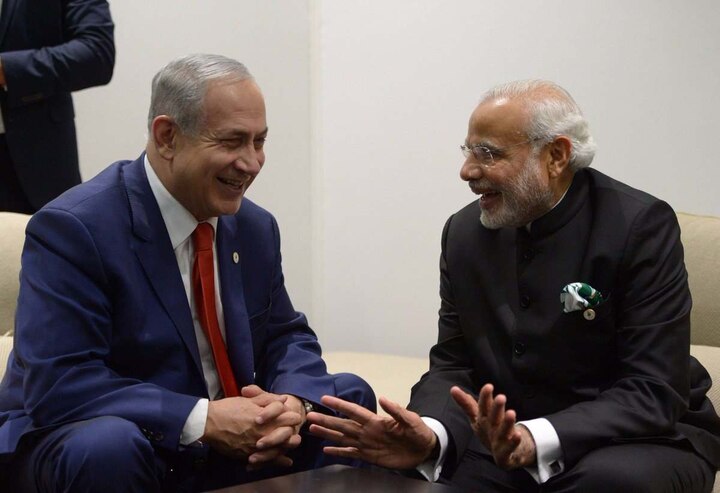Explorer
Technology procurement should be agenda for Modi's visit to Israel

Indian and international media have been speculating about Narendra Modi visiting Israel ever since he became Prime Minister in May 2014. While coverage and discussions about his innumerable visits to different countries and continents have been considerable, the buzz about his yet-to-take-place visit to the Jewish State has not died down. Despite periodic speculations, there is not clarity as to the date, agenda and above all the nature of such a visit.
Ever since he visited the UAE in August 2015, Prime Minister Modi’s engagements with the Middle Eastern countries have been stand alone visits. There is a strong case to maintain the same vis-à-vis Israel, that is, without making a symbolic visit to Palestine. Since the normalisation of relations in January 1992, Indian leaders have been visiting Ramallah while engaging with Israel. Both President Pranab Mukherjee and External Affairs Minister Sushma Swaraj followed this trend when they visited Israel in October 2015 and January 2016 respectively.
One could make a strong case for Modi moving away from this diplomatic balancing. Political mileage accruing to India by him visiting Palestine is temporary, insignificant and largely domestic in nature. His internal critics and traditional ‘Arabists’ might temporarily sing about the historic significance of Nehruvian foreign policy and harp on compulsions which Modi forced to pay a customary visit to Ramallah.
Viewed through hardcore realism, the diplomatic gains of an Israel-Palestine visit by Modi would be insignificant. While Palestinian issue continues to resonate among the Arab masses, elites and some leaders, its overall relevance for inter-regional engagements has dwindled. For example, when it was negotiating the delicate nuclear agreement with the West, Iran rarely flagged the Palestine issue. Countries which were championing the Palestinian cause such as Syria, Iraq or Libya, are bogged down domestic crises and state survival.
The two-state solution, that is, Israel and Palestine co-existing side-by-side, remains the most viable and realistic settlement to the vexed problem but neither side is prepared to make the necessary compromises. Moreover, the Palestinian society is deeply divided than is commonly recognised within India. Even the wider aspirations of ending the Israeli 'occupation' and statehood proved insufficient to unite them.
Ever since he succeeded President Yasser Arafat in November 2005, Mahmoud Abbas has not visited the Gaza Strip, the other part of the Palestinian Authority. While much of the world is talking about two-state or one-state solutions, a de facto three-state solution exists on the ground, namely, Israel, Fatah-ruled West Bank and Hamas-ruled Gaza Strip.
Over time the expression 'negotiations' has assumed an ominous meaning. In the 1990s it implied Israeli-Palestinian negotiations; later it symbolised inter-Palestinian negotiations, that is between the Palestinian Authority and the PLO; and in recent months the Arab Quartet, comprising Egypt, Jordan, Saudi Arabia and the UAE, is seeking reconciliation between factions within Fatah for a post-Abbas political scenario. Thus, visiting Palestine would not offer any tangible political gains to Modi or his foreign policy goals. On the contrary it would limit his ability to make a hard-bargain vis-à-vis Israel.
On the other hand, a standalone visit to Israel would be meaningful and productive if it was accompanied by hardcore realism and tough bargaining. A de-hyphenated visit would be politically controversial within the country and might raise many eyebrows abroad and hence careful planning is inevitable.
Modi must go behind the conventional expectations from Israel namely, heightened cooperation in counter-terrorism, intelligence sharing and border management and increased arms procurement. Important as they are, these can be accomplished without a prime ministerial visit, especially without a standalone trip. The usual chorus of Israel partnering the Make in India campaign may be heart-warming and headline-making but would not be enduring and substantial.
To be effective, a visit to Israel, either standalone or as part of a regional tour, should have one single agenda, namely technological procurement. Despite high rhetoric, countries thrive on technological edge over their military adversaries and economic competitors and hence technology transfers are rare and less frequent. Expecting Israel to transfer sensitive technologies would be naïve and impractical. Despite all the bonhomie, the US did not always share sensitive technologies with Israel and there is no reason why India-Israel relations would be different.
The key word, therefore, is procurement and not transfer. Modi’s shopping list in Israel should be different, namely, list of Israeli companies that have technologies that are critical for India’s economic growth and technological progress. This would include recycling, desalination, water conservation and management, primary and secondary healthcare, information and communication, pharmaceutical and non-conventional energy. Private companies should be induced to think big and buy stakes in critical Israeli technologies. Modi should also not rule out seeking a stake in the Leviathan gas field in the Mediterranean off the coast of Tel Aviv.
Sky is the limit, one argued in January 2008 when India launched the Israeli spy satellite. If technology procurement is his agenda, a Modi visit to Israel would break even this barrier.
(P R Kumaraswamy teaches at Centre for West Asian Studies, SIS, Jawaharlal Nehru University and tweets @kumaraswamyJNU)
Disclaimer: The opinions, beliefs and views expressed by the various authors and forum participants on this website are personal and do not reflect the opinions, beliefs and views of ABP News Network Pvt Ltd.
View More



























